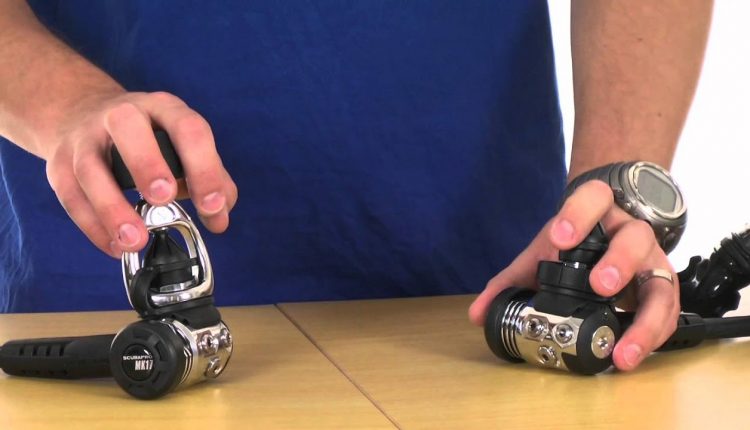How to Choose the Best Regulator
There is a lot to consider when choosing new regulators such as diaphragm or piston first stages, balanced or unbalanced, environmentally sealed and Coldwater rated, DIN or A-Clamp (Yoke).
Making an educated decision the first time can really help reduce the need to upgrade or replace expensive equipment at a later date.
Rating: 4.61

both regs he has up are balanced, and all regs compensate for depth
Still a great, informative video. Thanks Mark.
"The first breath is as easy as your last breath….. breath during the dive" :D:D:D
This video is aimed at recreational diving, if you we're doing technical diving (past 130 feet, trimix..etc) then you would have much further training and know what you need. In the recreational limits, you would not be able to tell the difference between a piston or diaphragm, that only comes into play when you are really…really deep. Contrary to what you said, my LDS charges less to service a diaphragm than a piston. Yes there is more parts, however they are much smaller and require less disassembly. Happy diving
Hats off to SimplyScuba for giving awesome and informative videos. May I ask here if my Mares MR12 DFC first stage is a Balanced first stage since it has been described to have a Balanced Diaphragm Design? Does balanced diaphragm immediately mean that I am using a balanced regulator? Thanks ahead for any input.
I still use a Mark 10 with a R109 as my Octo and a Polar 2nd as my main.
Apeks: cold water proof (can be used also in tropics), robust build, lifetime warranty (if annually maintaned), easily maintained – one maintenance kit fits all models (ie. insides are almost 1:1 same), maintenance available anywhere and Apeks is in most places even cheaper than the other regs. Has never let me down during my 10 year career – currently have 6 Apeks regs personally (OC, CCR and stages).
Apeks xtx200, British and bulletproof – I wouldn't trust my life to anything less.
I'd avoid combining the secondary air with the infiltrator. Whilst it does make diving more streamlined, it is also more difficult to use practically. Imagine trying to manage a stressed diver, performing a controlled ascent (releasing air from your BCD) and trying to breath from it all at the same time. An independent octopus is far simpler to manage when in a dangerous situation.
what do you mean by balanced and unbalanced
You were so much help thanks
Very informative and helpful.
I am purchasing my first dive kit and I'm thinking of using the Cressi Ellipse Titanium MC9 (without the sensitivity adjustment knob). http://www.leisurepro.com/p-csbre9t/cressi-ellipse-titanium-mc9-regulator Do you think this is a good starting point? Also going with Cressi Travelight BC, Cressi XS Octopus and a Genesis 2 gauge compact console with Suunto D4i. Any recommendations?
what watch are you wearing
Yes. Always trust the Germans. DIN!
a clamp = dinosaur diving
din=good.
much easier to buy a din reg and bolt on the converter than go for antiquated a clampery.
Very informative, thanks!
Yoke or A valve just feels less ideal when securing. For my Caribbean dives I never screw more than finger tight (I have yet to find din tanks)- so many people overtighten and this over time distorts the clamp. You don't need it too tight as the pressure seals things.
Felipe the xtx200 and Atomic are both exceptional regs and you would do great with either one. The apeks is a little more cost effective maintenance wise but as long as you take care of your reg you should not have any of that to worry about. They cost the same to do your yearly service so really it's a matter of what fits and feels best for you. Go look at the two of then at a dive shop and compare them side by side.
Junko the din and yolk only refers to the first stage of the regulator, it is just the fitting for how it connects to the tank.
what is difference between DIN and Yoke Regulators?
Love that adapter for DIN